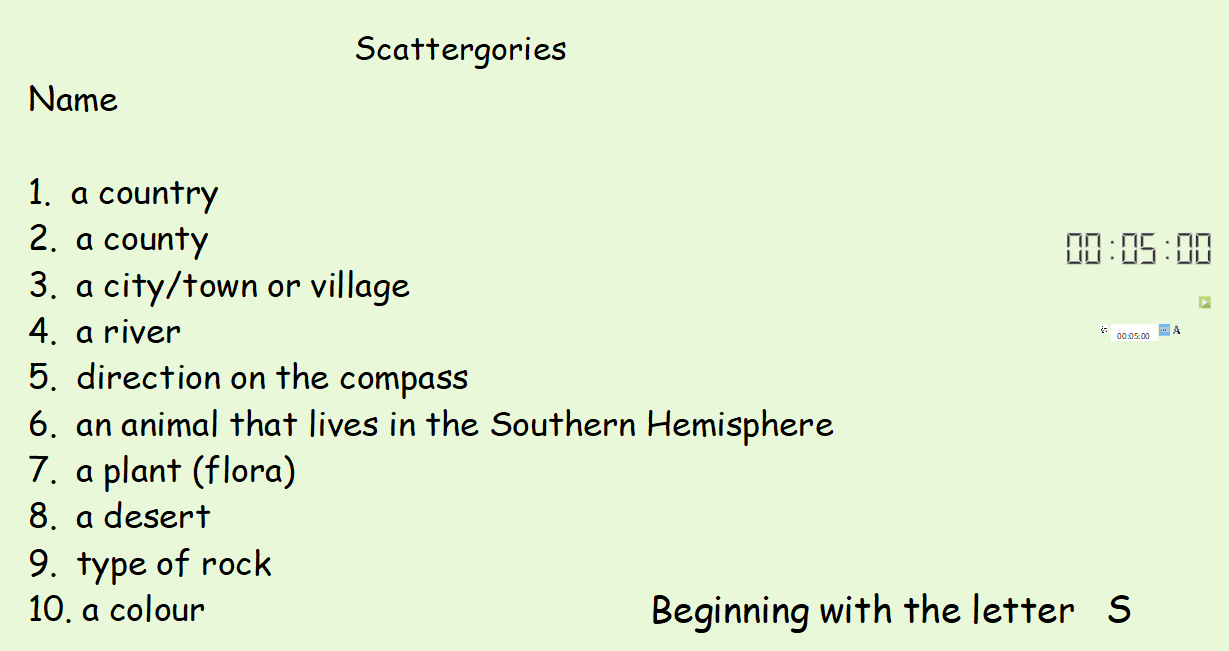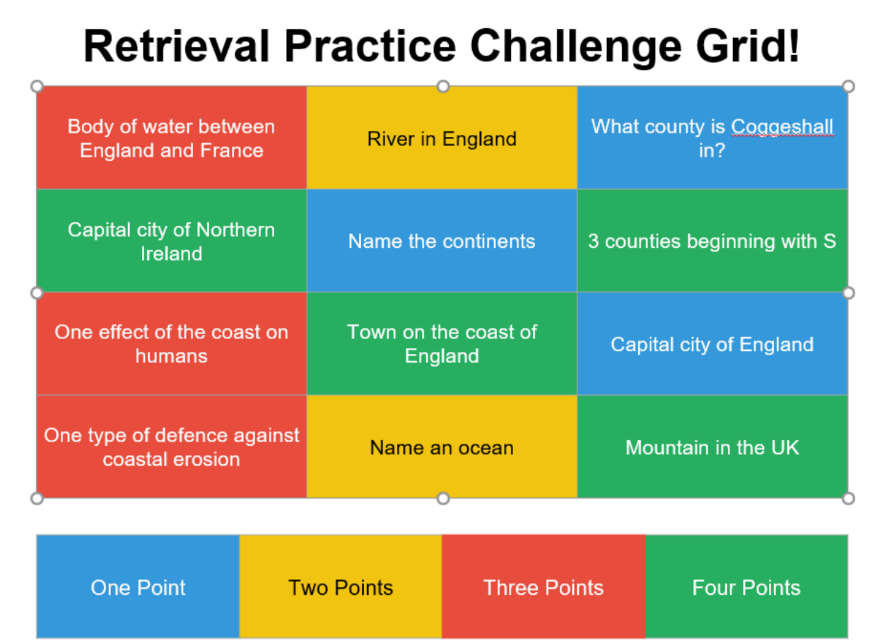Practical recall methods in classroom practice

Following on from her blog post on recall in November 2021, ELE Vanessa Sullivan discusses the use of ‘Retrieval Grids’ and provides links to some useful templates and examples.
In my last blog post on recall (link here), I discussed some of the issues facing pupils in long term retention of skills and information. We need to be able to clearly demonstrate the impact our curricula have and how our pupils “learn more and remember more” (to use Ofsted terminology). There is also some crossover here with metacognition (another hot topic in classroom pedagogy): children need to develop the ability to monitor, reflect and evaluate on their learning and part of this connects to how effective they are in remembering.
One technique that is gaining popularity in classroom settings is the use of retrieval practice. This is “a strategy in which calling information to mind subsequently enhances and boosts learning. Deliberately recalling information forces us to pull our knowledge “out” and examine what we know” (Agarwal, Roediger, McDaniel and McDermott 2020).
Retrieval grids are often utilised to this end in interactive, whole class formats through the medium of software such as Powerpoint or Smartboard/Lynx etc. Here is an example of how such a grid is organised below, created by an MFL teacher (https://www.tes.com/teaching-resource/retrieval-practice-challenge-grids-blank-template-12214877 - membership free):
The idea is, that questions relating to a particular topic are written in each grid cell and pupils are asked to recall as many answers as possible in a given time frame. The further back in the past the information was originally presented or taught, the more points it is worth. The more difficult the retrieval practice, the more effective it is for long-term learning - retrieval practice creates challenging learning opportunities. Our best learning actually takes place at times when we may feel like progress is slow. However incorporating some easier “fluency” type recall questions, also helps maintain confidence.
Retrieval grids are also an example of “low stakes testing”, a term Marc Rowland uses in his discussion of good practice in improving outcomes for disadvantaged pupils. Such a task can be fun, engaging and less threatening for pupils, who may already suffer from a lack of academic self-efficacy and confidence.
Although initially employed more often by secondary teachers, we have found in our setting we can just as easily adapt this to primary aged pupils. Here are some examples from my peers’ Geography and PSHCE lessons, as well as a great adaptation of the popular Scattergories game, adapted to an academic context:


Want to know more?
If you would like to see further information about this technique, as well as downloadable templates, this website is an excellent place to start: https://www.retrievalpractice.org/strategies/2018/9/28/retrieval-grids with links to research such as http://pdf.retrievalpractice.org/RetrievalPracticeGuide.pdf or the “ICT Evangelist”.
Written by Vanessa Sullivan, Evidence Lead in Education, St Peter’s CE V/C Primary School, Coggeshall
Find out more about Vanessa here.
To read our other ELE blog posts, click here.
To sign up to receive new ELE blog posts directly to your inbox, click here.
